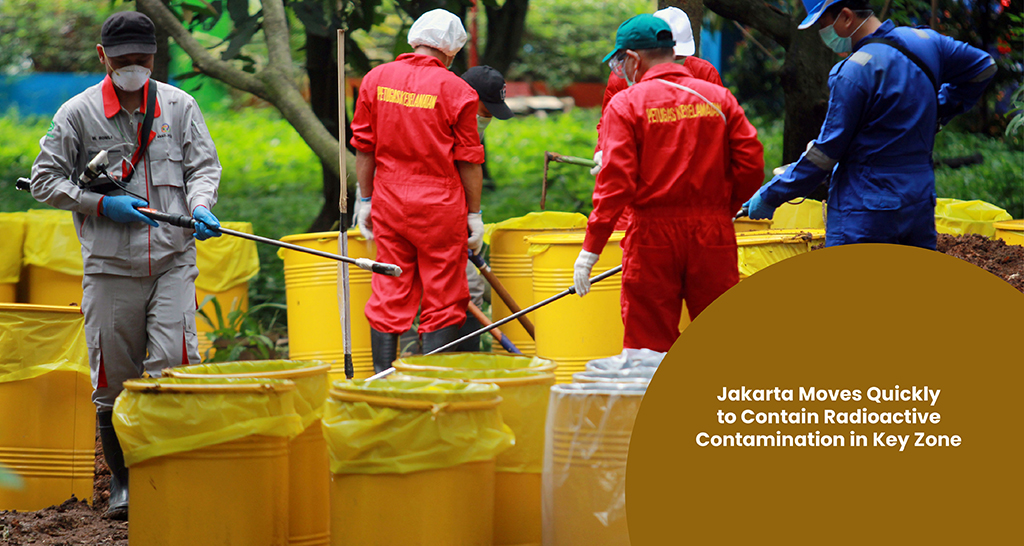Indonesian authorities are ramping up their efforts to fully assess the radioactive contamination at the Modern Cikande Industrial Estate in Banten Province. This comes after traces of cesium-137 were found in both export products and various spots within the industrial area.
The alarm was first sounded when radioactive elements were found in frozen seafood shipments tied to a processing company at the estate. Further inspections uncovered contamination in other agricultural exports, leading to a comprehensive investigation into potential sources. Initial findings suggest that a steel and scrap processing plant is at the heart of the contamination, with radiation likely spreading through airborne particles and possibly water channels linked to the facility.
Officials have identified at least ten different spots within the industrial zone where radiation levels are above safe limits. In response, the government has shut down the suspected plant, restricted access within a five-kilometer radius, and sent teams to handle decontamination efforts. Trucks and workers entering and leaving the area are being screened, and radiation detection units have been set up at several checkpoints.
Over 1,500 people who live and work nearby have already gone through health screenings. While most of them showed no signs of exposure, at least nine individuals have been found to have potentially harmful levels of radiation. They are currently receiving medical monitoring and treatment. Authorities have reassured the public that strict containment measures are in place to prevent any broader health issues.
Despite growing concerns, officials have reassured everyone that the contamination has been relatively minor and hasn’t impacted the national food supply or other industrial exports. Still, this incident has sparked worries among local communities and international trading partners about the long-term safety and reputation of Indonesia’s export industries. Residents living near Cikande are understandably anxious about the potential contamination of their soil, crops, and water resources. Meanwhile, environmental groups are pushing for more transparency and stricter regulations when it comes to handling scrap metal.
The government has officially labeled the area as a “special incident” zone and is working closely with various ministries, such as health, environment, fisheries, and trade, to evaluate risks and provide reassurance to both local and international stakeholders. Teams are already on the ground decontaminating the identified hot spots, focusing on removing contaminated soil and securing affected materials. Meanwhile, experts are busy conducting thorough mapping to understand the full extent of radioactive particles and assess any lasting effects on the environment.
Officials have announced that they are taking administrative action against the steel processor involved, which includes suspending its operations and possibly revoking its permits. Investigations are still underway to find out if negligence or violations of environmental laws played a role in the contamination. They have not ruled out the possibility of criminal charges either.
Authorities are anticipating a clearer picture in the upcoming week as they wrap up mapping and environmental testing. For now, the priority is on containing radiation, protecting public health, and ensuring that Indonesia’s crucial export industries stay strong in the face of this unprecedented challenge.



Discussion about this post